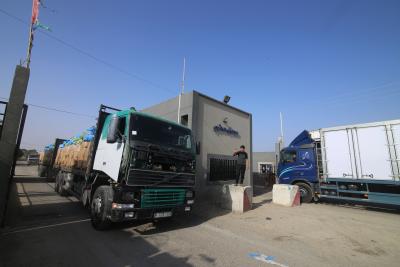Gaza, Oct 21 (IANS) For the first time since the raging Israel-Hamas conflict erupted on October 7, 20 trucks loaded with humanitarian aid entered Gaza on Saturday through the Rafah crossing, the only border crossing between the besieged coastal enclave and Egypt, after a two-week blockade.
Gaza, Oct 21 (IANS) For the first time since the raging Israel-Hamas conflict erupted on October 7, 20 trucks loaded with humanitarian aid entered Gaza on Saturday through the Rafah crossing, the only border crossing between the besieged coastal enclave and Egypt, after a two-week blockade.
The trucks were loaded with medical aid donated by Egypt’s institutions of the National Alliance for Civil Development Work and the Egyptian Red Crescent, Aya Ahmed, public relations officer of Life Makers Foundation, told Xinhua news agency.
While Israel has agreed to allow 20 trucks carrying aid into Gaza through the Rafah crossing, it has refused to allow fuel to cross the border.
Earlier in the day, the US embassy in Israel said that it had received information that the Rafah crossing will open at 10 a.m. (local time) on Saturday morning.
“If the border is opened, we do not know how long it will remain open for foreign citizens to depart Gaza. We anticipate that many people would attempt to cross should the border open,” CNN quoted the mission as saying
“US citizens attempting to enter Egypt should expect a potentially chaotic and disorderly environment on both sides of the crossing.”
The Embassy added that the situation remains “dynamic and fluid,” and the security environment is “unpredictable,” advising people to “assess your personal safety and security before choosing to move toward the border or trying to cross.”
Humanitarian aid has been stuck in Egypt for days as Gaza plunges into a worsening humanitarian crisis amid the raging Israel-Hamas conflict.
Gaza is fast running out of food, water, fuel and medical supplies, while electricity blackout and ban on fuel imports have had “devastating consequences” on the healthcare system and access to clean water, the UN’s Office for the Coordination of Humanitarian Affairs (OCHA) warned on Saturday.
It added that about 1.4 million people had been displaced in Gaza – more than 60 per cent of the entire strip’s population of 2 million.
